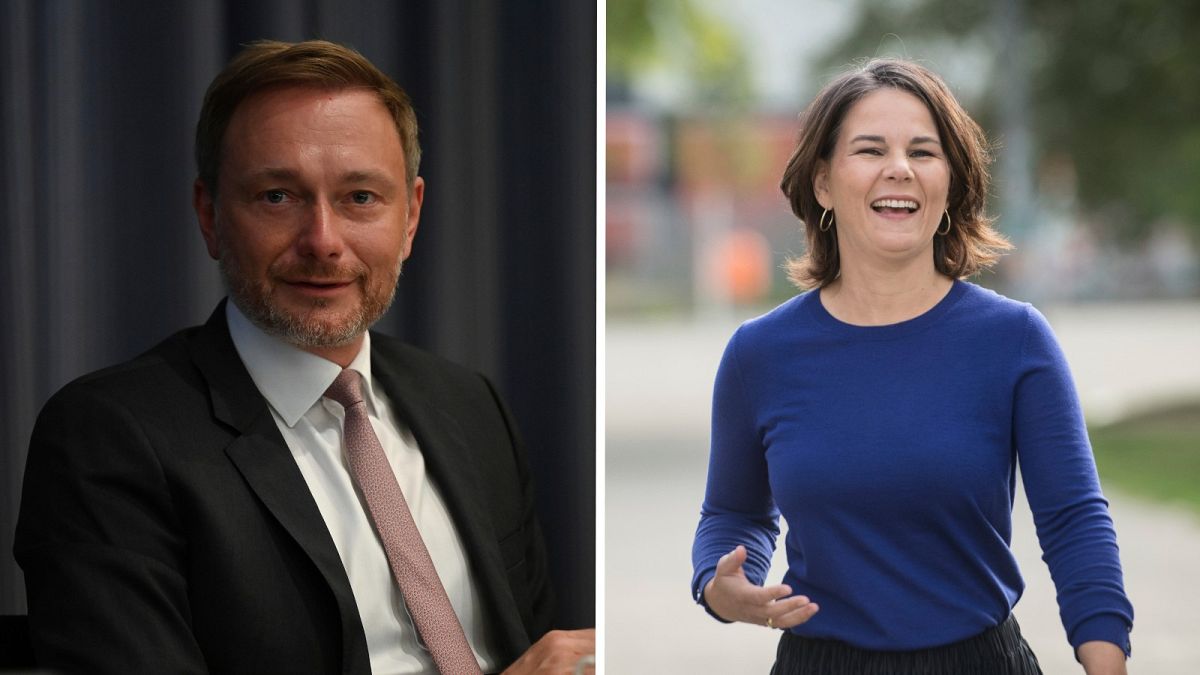As political parties set out to discuss how to form a governing coalition in Germany, two parties know they're in a position of strength: the Free Democrats and the Greens.
The preliminary results of the German election are known but what happens next is likely to be drawn out.
In the closest election race since 2005, the Social Democrats narrowly beat the Christian Democratic Union and Christian Social Union by just 1.6%. Yet no one party has enough seats to build a majority and three parties will likely be needed to form a coalition.
And the parties with the most power in those negotiations are not the two that finished first and second.
The likely kingmakers in Germany are rather the potential junior partners: the Greens, which came in third with 14.8% of the vote share and the Free Democratic Party (FDP) which came in fourth with 11.5%, according to initial results.
FDP leader Christian Lindner said that it made the most sense for his party to hold talks with the Greens first due to both parties' desire for a "change to the status quo."
"Both the FDP and the Greens know that they are negotiating from a position of strength. Each of them is basically needed for the likely or the preferred coalition options on the table," said Matthias Dilling, a lecturer at the University of Oxford.
The only possible coalition that the FDP and Greens would not be a part of would be a "Grand coalition" between the Social Democrats and the CDU/CSU bloc. But that's the status quo in Germany and neither party would prefer that solution.
The debate will be "tedious and lengthy", said Rüdiger Schmitt-Beck, political science chair at the University of Mannheim, as the pro-business FDP and the pro-environment Greens have serious political differences.
The FDP "want liberal economic policies, low taxes and no big state, and a free market [policies]," Schmitt-Beck said, including lower government spending.
"That is probably the most difficult point when it comes to coalition negotiations with Social Democrats and Greens, because they want to increase spending, they want to invest," he said.
Also, the FDP would likely prefer a coalition with the CDU while the Greens would prefer a coalition with the SPD.
Previous coalition discussions in 2017 between the FDP, CDU and Greens -- known as a "Jamaica coalition" resembling that country's flag -- fell to pieces when the pro-business party walked out.
It resulted in the current "grand coalition" between the SPD and CDU, that was confirmed months after the election.
Greens leader Annalena Baerbock said Germans likely did not want a "grand coalition" once again.
Shift in German politics
Voters are moving away from the two mainstream parties towards smaller parties.
There are now five political parties with between 10 and 25 per cent of the vote, making coalition building much more difficult, and the SPD's "narrow win" does not necessarily mean it will govern.
"While the Social Democrats won, their result would probably have been seen as a disaster just a bit more than 10 years ago," Dilling said.
"Similarly, even though the CDU/CSU could still lead the next government, 24 per cent is by far their weakest result in a Bundestag election."
That leaves the smaller parties, which both significantly increased their seats in the Bundestag, to compromise.
